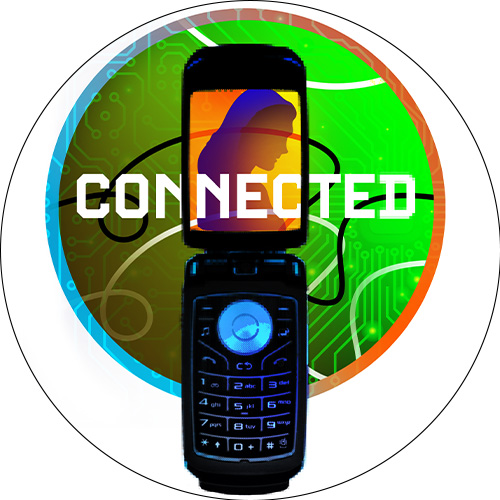Connected: Chapter 2 of 6

I kept telling myself: this was only an experiment. If it was completely impractical, I could always switch back

It’s not like I took out an ad in the paper about my plans (I guess these days we would say, “It’s not like I posted it as my status”), but as people began to realize I was switching from a smartphone to a basic model, reactions varied. The spectrum ranged from good-natured jealousy — “I wish I could do that; good for you” — to mild distain — “Life is complicated enough, why would you make things harder for yourself?”
I also saw a lot of defensiveness, which surprised me; I never expect anyone to do what I do, nor do I necessarily think it’s right for everyone to downgrade their tech use so quickly and dramatically (though I am willing to go out on a limb and say it’s probably right for more people than would admit it).
A couple of my friends expressed surprise and even mild disapproval at my “defection,” saying, “Aren’t you the one who’s supposed to show us how we can live with technology instead of renouncing it?”
Nope, not me! I was never the role model for perfect tech use, probably because it’s not possible to use technology with zero negative effects. More importantly, I don’t intend to live without technology. I have an updated laptop and an iPhone, which could now, I suppose, be used as an iPod or a camera.
Camera. Wait! What about pictures?!
And Waze?
And Uber?
One thing I kept telling myself: this was only an experiment. If it was completely impractical, I could always switch back.
I began looking into my options: hardcore dumbphones like a flip phone, or smartphones with preinstalled filters, available at my local frum tech store.
Waze is nonnegotiable for me, so I settled on the Fig, a flip phone with some basic apps like Waze, calendar, and weather on its tiny (at least to my middle-age eyes) screen.
A few people wondered why I didn’t just remove all the apps on my iPhone instead of switching to a basic one. Why so extreme? they asked/implied.
Hmm. Why not just use a TAG-locked smartphone?
I knew this was something I didn’t want, almost instinctively. Part of it is my personality; when I see something worth doing, I want to do it all the way.
It was also something that became clearer to me as I took myself through the process. I was sitting with my open iPhone in front of me, trying to figure out which apps I’d remove if I were to go the restricted access route. Essentially, all I needed was talk and text.
But… Waze stays, obviously. Weather is helpful and innocuous. TorahAnytime? It’s great to always have a shiur to listen to! The siddur app means I have a bentsher, which is super helpful. I need Uber, as well as airline apps, for travel purposes….
The truth is, the apps on my iPhone are all there for a reason. I don’t have games, or social media, or entertainment; I have only what I use. And yet, even with my severely pruned smartphone, what I have created is exactly what the makers of the smartphone intended: something so useful, something that is such an essential part of my life, I literally don’t find myself without it, ever. I go downstairs, I take it. Upstairs, take it. Go for a walk, check, to a simchah, check. It’s become a tool I can’t and wouldn’t ever want to be without.
And that’s exactly the issue.
My personal problem is not that I’m accessing the wrong things. My problem is that I am dependent on a tool so powerful, I rely on it to the point that I am looking down more than I am looking up. I am permanently connected in the name of efficiency. And this efficiency makes it harder and harder to disconnect.
Do I want to know how many steps I walk in a day? Sounds like fun! And how well I am sleeping at night? Why not? A notes app so I don’t forget anything? Indispensable. A directory of people in my community? So helpful. And on and on and on….
And the erosion to my menuchas hanefesh, as well as so many other creeping side effects, are real.
A flip phone can be frustrating. It’s often inconvenient.
I’m pretty sure that’s the point. The difficulty texting, the low-quality camera, the dearth of basic apps… it’s the perfect setup to eventually eschew the device entirely, using it only as a phone to call people. You take the long way around in order to stop living your life through a screen.
The smartphone keeps you looking down. The dumbphone keeps you looking up.
But with carpools and work and meal-planning and quick one-minute questions, is it realistic to klutzily fumble around on this annoying interface? Will the benefits of not having a smartphone outweigh the drawbacks?
And do I have the patience to find out?
To be continued…
(Originally featured in Mishpacha, Issue 979)
Oops! We could not locate your form.


